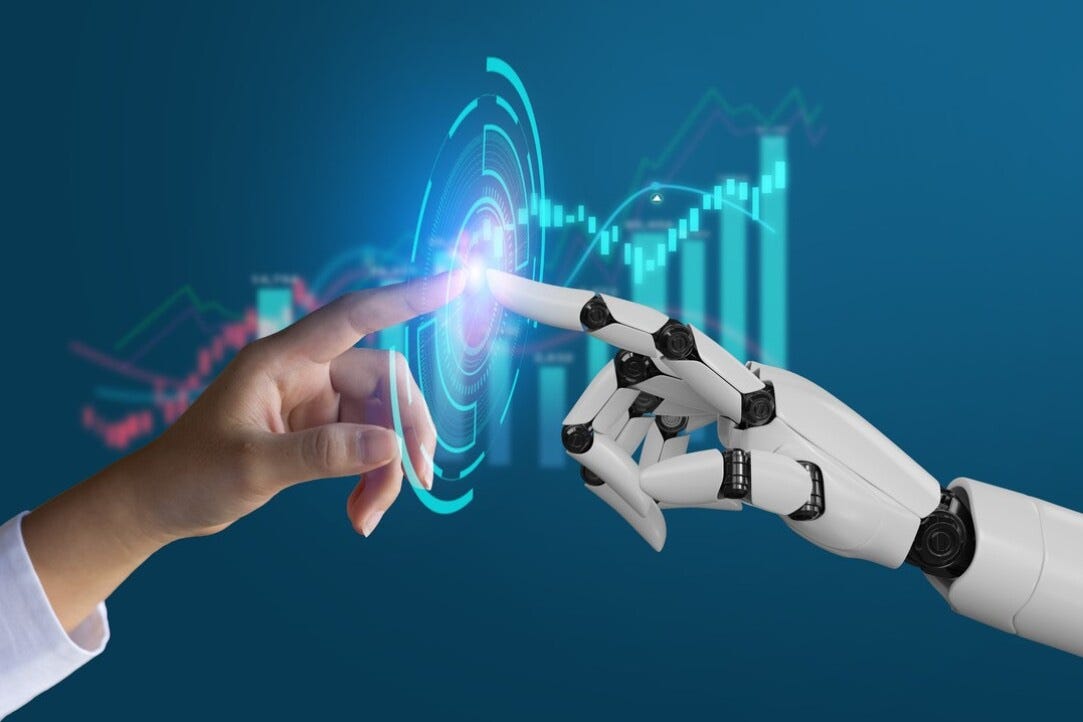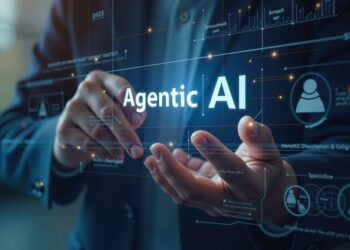
We are witnessing in this fast-evolving digital age a profound sectoral shift through the convergence of Artificial Intelligence (AI) and innovation. What was science fiction a while back is now a tangible reality—AI is not just augmenting businesses but also transforming what is possible. From precision medicine to pre-emptive supply chains, the scale and potential of AI are vast and wide. Here, in this article, we talk about how AI innovation is revolutionizing industries at their roots, advantages and disadvantages, and also about how businesses have to navigate through this smart world.
The Irreversible Dominance of AI Across Industries
In the past two years, AI has established itself as the basis for innovation in today’s world. AI technology is being applied to more real-world uses at a rate never seen before. Companies are therefore using AI not only to automate but to enable new levels of customer experience, productivity, and learning. Generally, AI is not substituting for innovation—it is speeding it up.
AI transformed industries
Healthcare
For starters, AI is revolutionizing the healthcare sector with intelligent diagnostics, virtual health assistants, and evidence-based treatment protocols. AI is capable of detecting diseases at an early stage using large healthcare data, providing accurate therapies, and even assisting in complex surgeries. As a result, the patient outcomes are improved, and the healthcare system is effective and responsive.
Finance
While the banking sector is using AI to fight fraud, reduce risk, and improve user experiences, algorithms now identify suspicious transactions automatically in real time, and robo-advisors offer customized investment advice based on customer behavior and preference. As the business goes increasingly digital, AI is enabling trust and transparency.
Retail
From customer service to inventory management, all is being augmented with AI in retailing. Chatbots based on AI, product recommendations, and demand planners are transforming the shopping experience. But above all, retailers can now forecast the requirements of their customers and offer frictionless, omni-channel experiences.
Manufacturing
In the factory, smart manufacturing is powered by AI. With predictive maintenance, real-time analytics, and robots, makers are reducing downtime, product quality, and supply chain optimization. The sector is thus increasingly quickly to respond.
Transportation
Finally, in the transport industry, AI is making vehicles autonomous, traffic smart, and logistics seamless. They are not only assuring better safety and reliability but also contributing to making the world cleaner.

The Overwhelming benefits of AI-Driven Innovation
No way could it ever be questioned that utilization of AI has many benefits:
- Increased Operating Efficiency – streamlined processes eliminate defects and enhance productivity.
- Strategy-Based Decision-Making – Business acumen enables decision-making with greater accuracy and foresight.
- Large-Scale Personalization – AI delivers experiences personal at every touchpoint.
- Cost Optimization – Smarter systems enable reduction of wastage and misuse of resources.
- Scalability of business – AI facilitates immediate response to trends in the marketplace and regions for opportunity growth.
All the aforementioned advantages lend much sound basis to industries adopting AI innovation from initial start to eventual completion.
Challenges and Ethical Issues
But advancement is not without its side effect. AI is great but entails grave ethical as well as functional problems:
- Job Replacement – Certain kinds of employment can be automated, and employees will need to be re-skilled.
- Bias and Fairness – Flawed algorithmic engineering can lead to malevolent continuance of social prejudice.
- Privacy and Data Security – AI frameworks are constructed on gigantic datasets, necessitating tight protection of privacy.
- Regulatory Frameworks – Legislation is lagging behind rapid progress in AI.
Therefore, responsible innovation must be balanced with ethical regulation and participatory design.
Ready for an Intelligent Future
Apart from responding, organizations have to do more in order to effectively shift into this age of AI:
- Invest in Building Talent – AI and data talent within the organization.
- Infuse a Culture of Innovation – Encourage experimentation and ongoing learning.
- Form Strategic Alliances – Collaborate with technology firms, startups, and learning institutions.
- Develop Ethical AI Standards – Prioritize transparency, accountability, and fairness at the core of AI implementation.
By it, businesses not only future-proof their business but also towards building a more ethical and equitable technological environment.
Short of that, innovation and AI are no longer optional—these are forces of change in the 21st century. As companies get smarter and smartest, those capable of unleashing the power of AI with imagination and ethics will be at the front of the pack. Finally, where human capability intersects with machine capability is the key to our biggest challenges and most amazing possibilities in industries.










